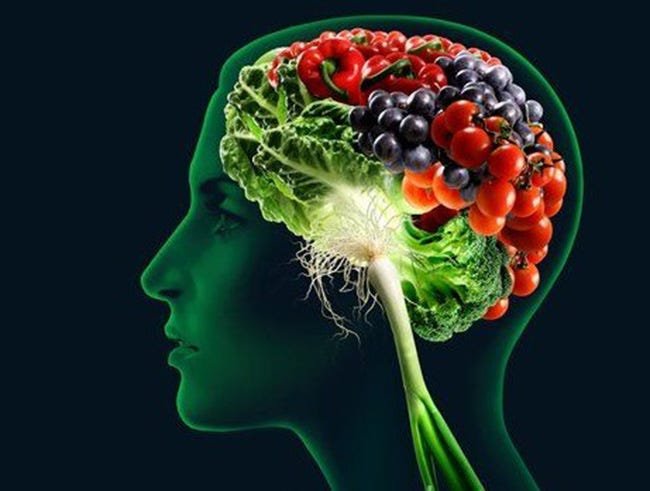Highlight text to turn on text-to-audio feature!
Can Massage Relieve Symptoms of depression, anxiety and stress?
Massage therapy can be beneficial for individuals experiencing anxiety and depression, and its effectiveness is supported by scientific evidence.
Below is a detailed explanation of how massage therapy can help alleviate these mental health conditions, supported by physiological and psychological mechanisms:
1. Reduction of Stress Hormones
Massage therapy can lower levels of cortisol, a hormone associated with stress. Elevated cortisol levels are often linked to anxiety and depression.
- Scientific Basis: Studies have shown that massage therapy reduces cortisol levels by approximately 31%. Lower cortisol levels contribute to a calmer mind and reduced anxiety symptoms.
- Mechanism: Massage stimulates the parasympathetic nervous system, which counters the fight-or-flight response. This creates a relaxation effect, reducing physiological stress markers.
2. Increase in “Feel-Good” Neurotransmitters
Massage increases the production of serotonin and dopamine, neurotransmitters that play a key role in mood regulation.
- Scientific Basis: Research indicates that serotonin levels can increase by about 28%, and dopamine by 31% following massage therapy sessions.
- Mechanism: Physical touch and pressure stimulate sensory pathways that release these neurotransmitters, which help counter feelings of sadness and anxiety.
3. Improved Sleep Quality
Anxiety and depression often disrupt sleep patterns, leading to insomnia or poor sleep quality. Massage therapy promotes better sleep.
- Scientific Basis: Studies reveal that massage can increase delta brainwave activity, associated with deep sleep.
- Mechanism: By reducing muscle tension and calming the nervous system, massage promotes deeper, more restorative sleep, which is crucial for mental health.
4. Reduction of Muscle Tension
Chronic anxiety can lead to muscle tension and pain, worsening psychological distress. Massage relieves this tension.
- Scientific Basis: Trigger-point therapy and deep-tissue massage have been shown to reduce musculoskeletal pain significantly.
- Mechanism: Massage improves blood flow and reduces inflammation, which helps release knots in muscles and relaxes the body.
5. Enhanced Mind-Body Connection
Massage encourages mindfulness by helping individuals focus on physical sensations and the present moment.
- Scientific Basis: Mindfulness-based therapies are effective for treating anxiety and depression, and massage incorporates similar elements.
- Mechanism: Focus on touch and sensation during the massage helps interrupt rumination, a common feature of depression and anxiety.
6. Social and Emotional Support
The therapeutic relationship with a massage therapist can provide emotional relief, especially for individuals who feel isolated or unsupported.
- Scientific Basis: Human touch is known to release oxytocin, a hormone associated with bonding and trust.
- Mechanism: The act of receiving care and attention during a massage fosters feelings of safety and connection, which combat loneliness and emotional distress.
7. Regulation of Heart Rate and Blood Pressure
Massage has a calming effect on the cardiovascular system, which can reduce physical symptoms of anxiety such as rapid heart rate and high blood pressure.
- Scientific Basis: Clinical studies show that massage therapy can lower systolic and diastolic blood pressure.
- Mechanism: The stimulation of the vagus nerve during massage helps regulate the heart rate and blood pressure, creating a sense of calm.
8. Boosted Immune Function
Chronic stress and depression suppress the immune system. Massage can improve immune function by reducing stress and promoting relaxation.
- Scientific Basis: Massage increases the activity of natural killer cells, which are crucial for immune defense.
- Mechanism: By lowering stress hormones and improving lymphatic flow, massage enhances overall immune health, indirectly improving mental well-being.
Which Massage is Best For Anxiety?
1. Swedish Massage
- Description: A gentle, relaxing massage that uses long, flowing strokes, kneading, and circular movements.
- Benefits:
- Reduces muscle tension.
- Promotes relaxation by stimulating the parasympathetic nervous system.
- Enhances circulation, helping to calm the body and mind.
- Why It’s Great for Anxiety: Its soothing techniques create a deep sense of relaxation and stress relief.
2. Aromatherapy Massage
- Description: Combines Swedish massage techniques with essential oils like lavender, chamomile, or bergamot.
- Benefits:
- The therapeutic properties of essential oils enhance relaxation.
- Reduces cortisol levels and promotes better sleep.
- Why It’s Great for Anxiety: The olfactory stimulation from essential oils has direct calming effects on the brain.
3. Deep Tissue Massage
- Description: Focuses on deeper layers of muscles and connective tissues using firm pressure.
- Benefits:
- Relieves chronic muscle tension caused by stress.
- Releases physical tension that can manifest as anxiety.
- Why It’s Great for Anxiety: By easing physical discomfort, it indirectly soothes mental stress.
4. Shiatsu Massage
- Description: A Japanese technique that applies pressure to specific points on the body to balance energy flow.
- Benefits:
- Reduces physical and emotional tension.
- Improves energy flow, promoting a sense of balance and calm.
- Why It’s Great for Anxiety: The focus on acupressure points helps regulate the body’s stress response.
5. Hot Stone Massage
- Description: Uses smooth, heated stones placed on specific parts of the body and integrates them into a massage.
- Benefits:
- The heat relaxes tight muscles and improves circulation.
- Provides a deeply soothing experience.
- Why It’s Great for Anxiety: The warmth of the stones enhances relaxation and reduces stress.
Which Massage is Best For Stress?
1. Shiatsu Massage
- Description: A Japanese massage technique that applies pressure to specific points on the body to balance energy flow.
- Benefits:
- Relieves physical tension and balances emotional stress.
- Enhances energy flow, promoting a sense of well-being.
- Why It’s Great for Stress: The focus on energy points helps regulate the body’s stress response and promotes relaxation.
2. Craniosacral Therapy
- Description: A gentle massage focusing on the head, spine, and sacrum to release tension and improve cerebrospinal fluid flow.
- Benefits:
- Calms the nervous system.
- Promotes a deep sense of relaxation and mental clarity.
- Why It’s Great for Stress: It directly targets the nervous system, where stress often originates.
3. Lymphatic Drainage Massage
- Description: A light, rhythmic massage designed to stimulate the lymphatic system and remove toxins.
- Benefits:
- Reduces stress-related inflammation and fatigue.
- Enhances immune function and promotes relaxation.
- Why It’s Great for Stress: The gentle strokes help calm the mind while detoxifying the body.
4. Thai Massage
- Description: Combines acupressure, stretching, and yoga-inspired movements to improve flexibility and energy flow.
- Benefits:
- Relieves physical tension and improves circulation.
- Promotes mindfulness and a sense of calm.
- Why It’s Great for Stress: The rhythmic movements and stretches encourage relaxation and reduce stress.
5. Indian Head Massage
- Description: Focuses on the scalp, neck, shoulders, and face using light strokes and kneading.
- Benefits:
- Relieves tension in areas most affected by stress.
- Improves mental clarity and relaxation.
- Why It’s Great for Stress: It targets stress buildup in the head and neck, providing immediate relief.
Which Massage is Best For Depression?
1. Swedish Massage
- Description: A classic massage involving gentle, long strokes, kneading, and circular motions.
- Benefits:
- Lowers cortisol levels, the stress hormone linked to depression.
- Boosts serotonin and dopamine levels, improving mood.
- Why It’s Great for Depression: Its calming techniques promote relaxation and enhance the production of feel-good neurotransmitters.
2. Aromatherapy Massage
- Description: Combines traditional massage with essential oils like lavender, bergamot, or sandalwood.
- Benefits:
- Essential oils have antidepressant properties that enhance mood.
- Relaxes the mind and body through the combined effects of touch and scent.
- Why It’s Great for Depression: The dual approach addresses both physical and emotional well-being, creating a holistic treatment.
3. Hot Stone Massage
- Description: Uses heated stones placed on key areas of the body combined with massage techniques.
- Benefits:
- Relieves physical tension and promotes circulation.
- Provides a warm, comforting sensation that enhances relaxation.
- Why It’s Great for Depression: The soothing warmth and gentle massage create a deeply nurturing experience.
4. Lymphatic Drainage Massage
- Description: A light, rhythmic massage that stimulates the lymphatic system to detoxify the body.
- Benefits:
- Reduces physical fatigue and inflammation associated with depression.
- Promotes a sense of lightness and vitality.
- Why It’s Great for Depression: Cleansing the body of toxins can improve energy levels and mood.
5. Indian Head Massage
- Description: Focuses on the scalp, face, neck, and shoulders using gentle strokes and pressure.
- Benefits:
- Relieves tension in areas prone to stress buildup.
- Stimulates blood flow to the brain, improving mental clarity.
- Why It’s Great for Depression: The focused attention on the head and shoulders can alleviate feelings of mental heaviness and enhance relaxation.
The Bottom Line:
Incorporating massage techniques into a wellness routine can be a powerful tool for managing anxiety, stress, and depression.
The gentle yet intentional manipulation of muscles and soft tissues not only promotes physical relaxation but also encourages mental clarity and emotional balance.
Techniques such as Swedish massage, deep tissue massage, aromatherapy massage, and acupressure have all shown promising results in reducing cortisol levels, improving mood, and fostering an overall sense of well-being.
Additionally, self-massage practices like hand or foot reflexology can serve as accessible, everyday solutions to help alleviate tension and promote mindfulness.
While massage therapy is not a standalone cure for anxiety, stress, or depression,
it serves as a complementary approach that enhances other treatments such as psychotherapy, medication, and lifestyle changes.
By activating the body’s natural relaxation response, these techniques create a safe space for individuals to reconnect with themselves, release pent-up emotions, and cultivate inner peace.
Ultimately, whether performed by a professional therapist or practiced at home, massage offers a holistic pathway toward healing—one that nurtures both mind and body.
FAQ:
Which is The Best Massage for Anxiety?
The best massage for anxiety to this aromatherapy and deep tissue massage.
Swedish massage uses gentle flowing strokes to calm The Nervous system and reduce stress hormones.
Whereas aromatherapy massage at essential oils like lavender to enhance relaxation through the power of scent.
Overall, these massages lower your cortisol level, increase serotonin, and promote a deep sense of calmness.

